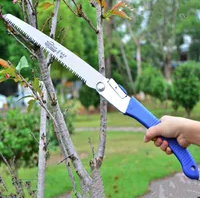Choosing High-Quality Hardwood in the Digital Marketplace: A Practical Guide

Are you thinking about installing real hardwood flooring in your home? Here is how to choose the best hardwood floors online!

Understanding Different Types of Hardwood
In today’s digital landscape, many online options simplify and complicate sourcing high-quality hardwood. Each hardwood species offers properties suited to various projects, whether furniture making, flooring, or cabinetry. Oak, for example, is well-known for its resilience and timeless appeal, making it a favorite for many projects. On the other hand, maple is prized for its smooth grain and versatility, and it is often used in sports equipment and musical instruments.
Exotic woods like mahogany and teak are sought after for their luxurious appearance and outstanding durability. Although they might have a higher price tag, these species can transform a simple project into a masterpiece. Understanding the characteristics of each type can ensure that your selection aligns perfectly with your project’s functional and aesthetic demands, making it crucial to invest time in researching and comparing different hardwood options.
Assessing Quality: What to Look For
Determining hardwood quality involves carefully considering several factors, including color consistency, grain pattern, and the presence of knots. Consistent coloration throughout the wood indicates a high-quality product, suggesting the wood has been evenly dried and properly processed. A clear and distinct grain pattern adds to the visual appeal and speaks to the wood’s structural integrity.
Kiln drying is a crucial process that significantly impacts the quality of hardwood. It involves extracting excess moisture from the wood, reducing the risk of warping, cracking, or other forms of deformation when the wood is used. Kiln-dried wood offers enhanced stability and longevity, making it a worthwhile investment for any serious project.
Choosing the Right Supplier
The importance of selecting a reputable supplier cannot be overstated, as the supplier’s integrity directly influences the quality of your hardwood. When venturing into the online marketplace, it’s essential to vet potential suppliers thoroughly. At KJP Select Hardwoods, customer reviews and testimonials provide firsthand accounts of other buyers’ experiences, offering valuable insights into product quality and supplier reliability.
Additionally, investigating a supplier’s sustainability practices is becoming increasingly important. Ensuring that hardwood is sourced responsibly contributes to environmental preservation and guarantees that you receive materials of superior quality. Look for suppliers that adhere to guidelines provided by certification bodies such as the Forest Stewardship Council (FSC).
Navigating Online Marketplaces Safely
Purchasing hardwood online requires a cautious approach to protect yourself from pitfalls and scams. Ensure the online marketplace offers secure payment methods, facilitating safe transactions that protect your financial information. Additionally, transparent return and exchange policies should be clearly stated, providing peace of mind that you can rectify issues that may arise post-purchase.
Effective customer service is another critical component of a positive online shopping experience. Engaging with a readily available and helpful customer support team can significantly enhance your confidence in the purchase. It indicates the business’s dedication to its customers and commitment to ensuring that you receive the best possible service and products.
Considering Environmental Impact
In the current age of heightened environmental awareness, the sustainability of materials is a major consideration for many consumers. Responsibly sourced hardwood protects forest ecosystems and ensures higher material quality and longevity. Choosing wood with an FSC Certification or similar accreditation assures that it is harvested in a manner that maintains ecological balance.
By selecting environmentally friendly options, you contribute to the conservation of natural resources and endorse sustainable practices within the industry. This conscientious approach reflects positively on your project and positions you as an informed consumer committed to sustainability.
Cost Considerations and Budgeting
Cost is essential when sourcing hardwood, as prices vary widely based on the wood’s species, quality, and rarity. Setting a clear budget helps you make informed choices and ensures your project remains viable. While exotic woods may command a premium, their unique features and enduring beauty often justify the added cost.
Balancing cost and quality is key to achieving satisfactory results without overspending. Consider the long-term benefits of investing in high-quality wood, which often translates to enhanced durability and reduced maintenance costs, offsetting the initial financial outlay.
Overcoming Common Pitfalls
While convenient, the online marketplace has potential challenges, such as fraudulent listings and misrepresented products. To avoid these pitfalls, buyers should exercise diligence by thoroughly verifying product details and supplier credentials. Recognizing credible listings often involves looking for specific indicators, such as detailed product descriptions, high-resolution images, and verified customer reviews.
Investing time to perform due diligence can save time and money in the long run, allowing you to confidently navigate the digital marketplace and ensure that your purchase aligns with your expectations and project requirements.








